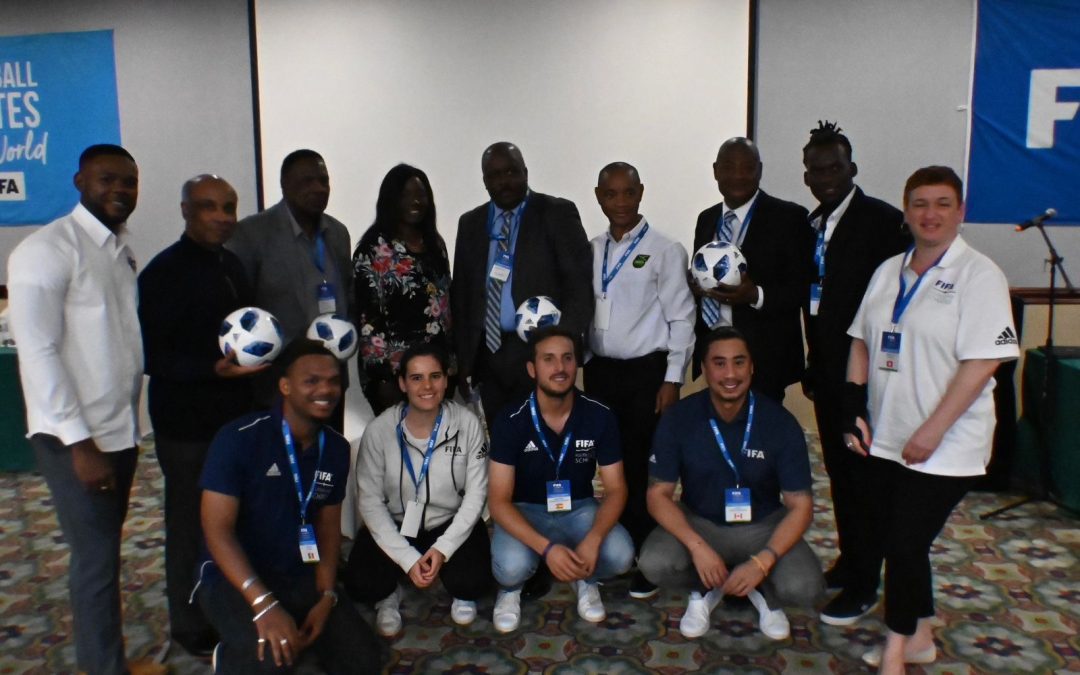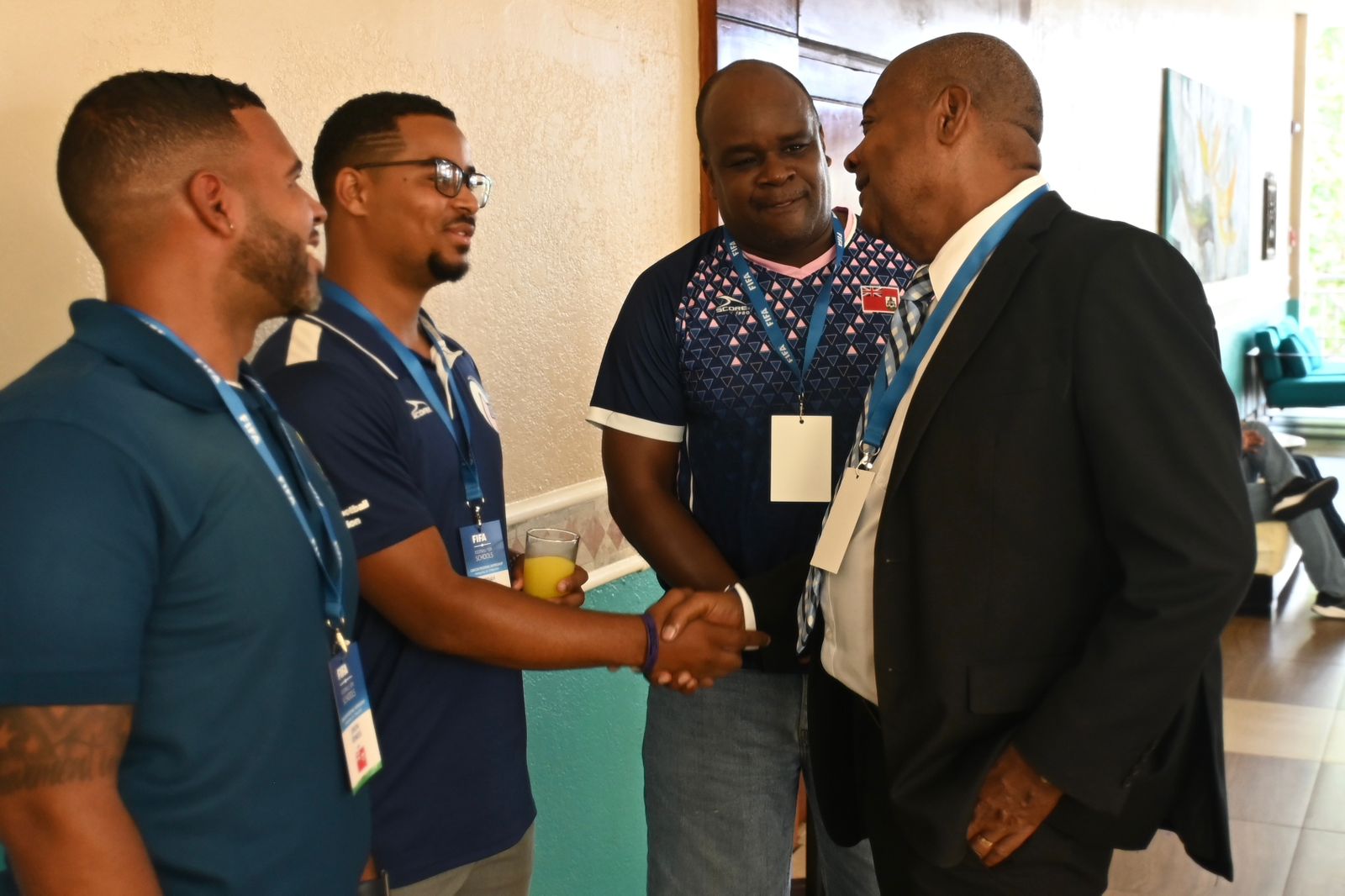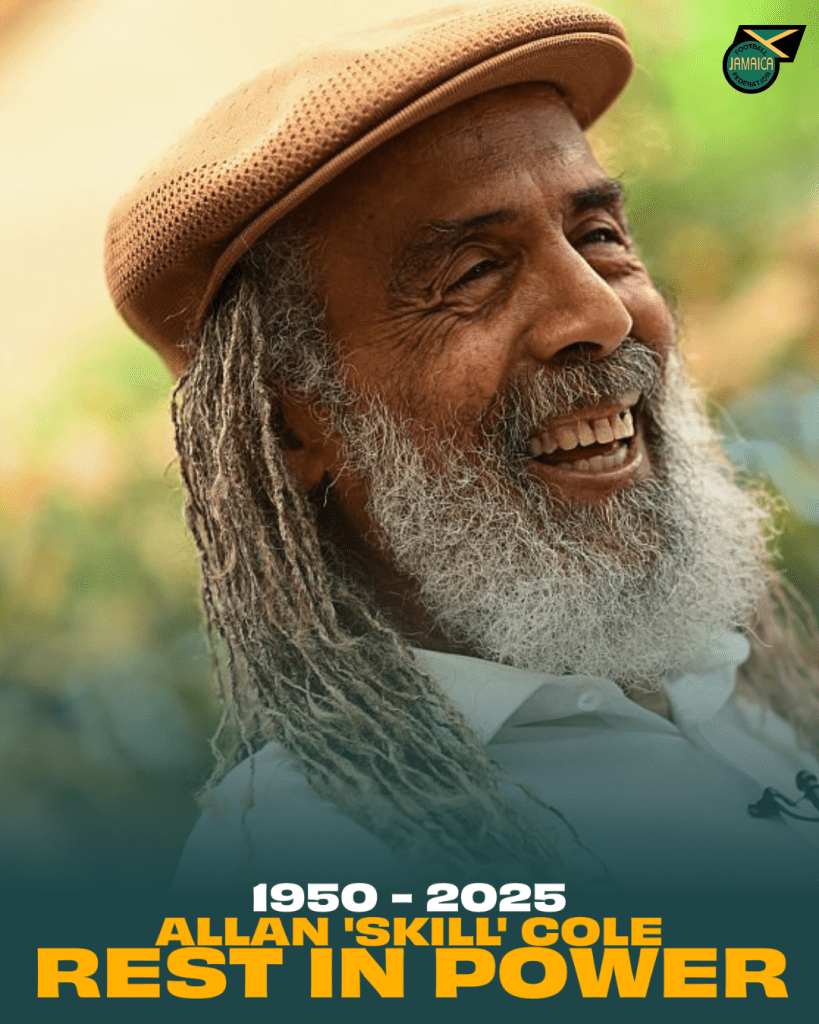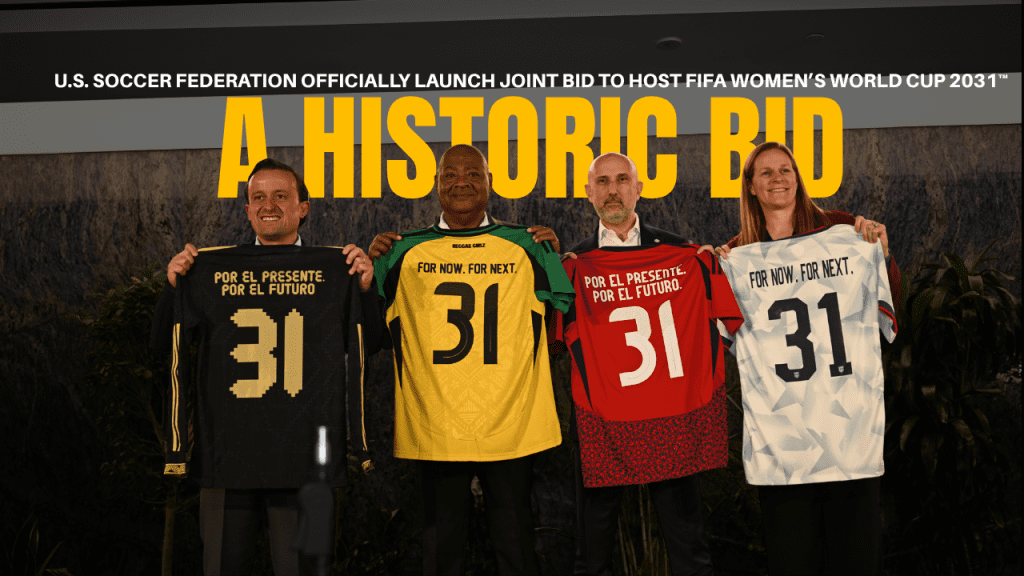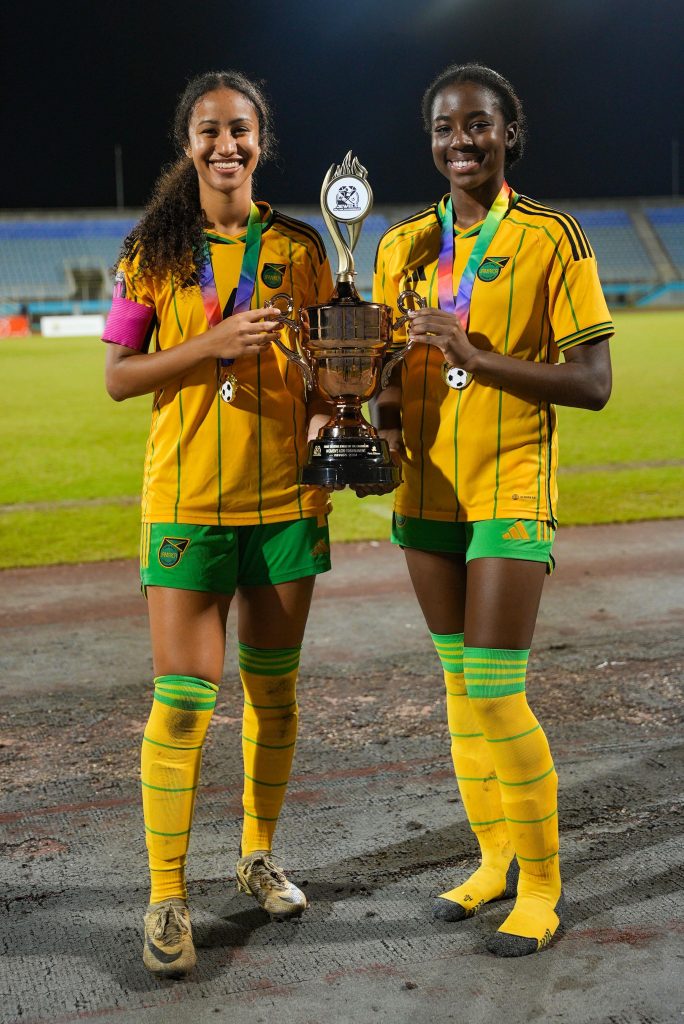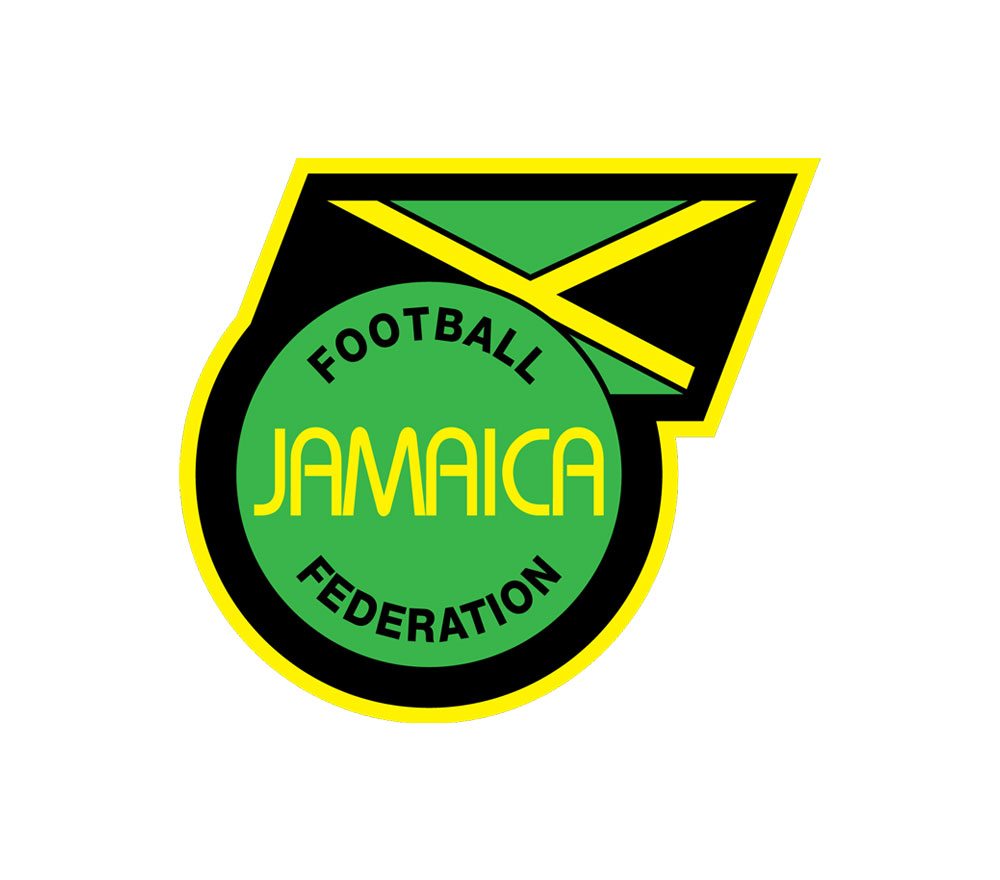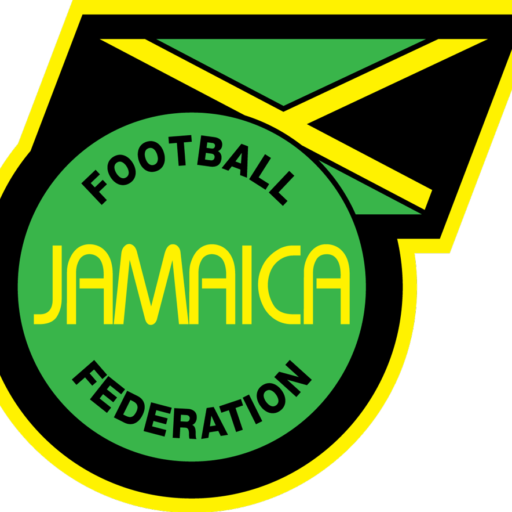FIFA workshop for schools a ‘game changer’
Jamaica Football Federation (JFF) President Michael Ricketts (centre), FIFA’s director of the F4S programme Fatima Sidibe (left), and JFF Vice-President Raymond Anderson during the opening ceremony of the FIFA F4S workshop at Holiday Inn Sun Spree in Rose Hall, St James, on Monday. (Photo: Paul Reid)
ROSE HALL, St James — Jamaica Football Federation (JFF) President Michael Ricketts thinks the implementation of the FIFA Football For Schools (F4S) in Jamaican primary schools and the grass roots system could be a “game changer”.
Ricketts, who admitted that implementation of the programme will prove to be a challenge for the JFF, said the workshop will be of immense value to Jamaica in changing the culture of socialisation in sports.
“This workshop is massively important for us; like I have always been advocating for social change relating, particularly, to those who play football,” he said at Monday’s opening of the three-day workshop for F4S in the region, staged in St James.
“This is welcome news for us and for me, in particular. As I have said: I really want to use football as, not for sport but as an agent for change — and this JFF will certainly be the vanguard for change as it relates to the social impact.
“[The initiative is] not just about playing football but using the sport to engage kids and to change the whole psyche of little ones who play and to make of these kids wholesome human beings, so I am just very very excited. This will be a game changer,” he noted.
The JFF is staging the first regional F4S workshop at the Holiday Inn Sun Spree in Rose Hall, St James. It started on Monday and is hosting 90 delegates from 21 countries in the Caribbean.
A FIFA team, led by director of the F4S programme Fatimata Sidibe, will conduct the workshops in the initiative that started in Kigali, Rwanda, in 2018 and has so far been implemented in over 50 of the 211 FIFA associates.
F4S, which is held in collaboration with UNESCO and Caricom, during this stop on the global trek will see each federation getting US$50,000 as a one-time grant, footballs, as well as digital applications and capacity-building opportunities, Sidibe outlined during Monday’s opening ceremony.
While Ricketts said the financial allocation from FIFA was welcomed, he added: “We certainly will need a lot more than that, but it will be a start. I understand that FIFA has made US$100 million available for this programme.”
Ricketts admitted that given the popularity of the game in Jamaica, implementation of the programme across the length and breadth of the island would take some work.
“That will present a challenge because I heard that we have over 800 primary schools,” the JFF boss said. “But I suppose what we will need to do is to set up a task force to go through the entire process. What we will do is probably engage those schools who are actually playing in formal primary schools competitions, so we will go through the respective parishes.”
Ricketts said they could also include the over 250 local coaches whom he said have completed their CONCACAF C licences.
“We have always thought that it is important that when kids are starting to play the game, they do so with proper coaches,” he said.
Keith Wellington, president of the Inter-secondary Schools Sports Association (ISSA), while noting his association might not be able to be fully involved, pledged support to the JFF.
“Based on the scope of this project I don’t think all our schools will be able to be involved but, in partnership with the JFF, we could look at schools in particular geographical areas where we think this programme can have a positive effect on their socialisation.”
He said that ISSA is drawn to the social development of children.
“Our main mandate is to get our kids to be socialised in a manner so they can fit into society as worthwhile citizens.
He added: “What we aim for our competitions is similar to the four pillars that have been identified by FIFA for its football for schools programme in terms of getting students to use the sport to be properly socialised in terms of their interaction with others, identifying their participation in sports as contributing to their health and well-being, as well as to form bonds over time [via] networking opportunists.”
Courtesy of the Jamaica Observer

